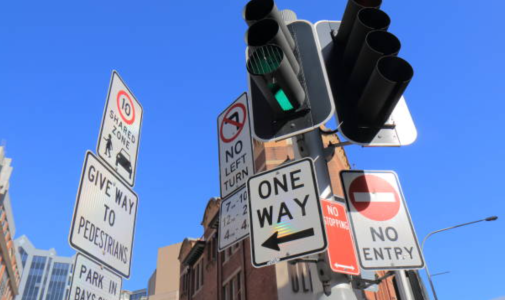Aussie drivers face unfair punishment as shocking truth behind double demerit penalties emerges
By
- Replies 34
As the holiday season approaches, Australian drivers face the looming threat of double demerit points again.
This system, designed to deter dangerous driving during peak travel times, has been a staple across different states in the country for years.
However, the effectiveness of double demerits has recently come under scrutiny, with some experts calling for a re-evaluation of this punitive approach.
Double demerits are straightforward: during specified holiday periods, the penalties for certain traffic offences are doubled to encourage safer driving practices.
The fear of losing one's license should be enough to keep drivers in check.
But is this system making Australian roads safer, or is it simply penalising drivers without providing a real solution to the problem?
Recent discussions among road safety advocates and researchers have highlighted a lack of contemporary evidence supporting the efficacy of double demerit campaigns.
While the initial introduction of double demerits may have been backed by research, there's a growing consensus that more up-to-date, peer-reviewed studies are needed to assess their current impact on driver behaviour.
Peter Khoury from the NRMA has voiced support for double demerits in certain situations but acknowledged the need for more rigorous research into their effectiveness.
'We should be reviewing road safety initiatives regularly, all of them, not just double demerits because conditions change,' he said.
'So when we're talking about road safety, we should be encouraging more peer-reviewed research into their effectiveness.'
Ingrid Johnston, CEO of the Australasian College of Road Safety, echoes this sentiment and admits that recent studies are scarce.
The enforcement of double demerits varies across the country. In NSW, WA, and the ACT, they are applied during holidays for offences such as speeding, mobile phone use, seatbelt violations, and motorcycle helmet infractions.
Queensland takes a different approach, applying double demerits year-round to repeat offenders to maintain a consistent deterrent effect.
In contrast, Victoria, South Australia, Tasmania, and the Northern Territory do not enforce double demerits at any time.
A Victoria Police spokesperson has stated that no evidence suggests double demerits provide a proven safety benefit or act as an effective deterrent during holiday periods.
The debate over double demerits comes against a backdrop concerning road safety statistics.
Over the past decade, an average of 380 lives have been lost on Australian roads during the Christmas holidays, with young drivers aged 17 to 25 years old being particularly at risk.
Acting Assistant Commissioner Tracey Chapman has observed increased dangerous driving behaviours during the festive season despite the heightened penalties.
Emeritus Professor Ann Williamson from the University of NSW Transport and Road Safety Centre suggested that the impact of demerit points is likely short-lived and that doubling them may not lead to a significant change in driver behaviour.
'Getting a letter in the post three weeks after the holidays has not changed your behaviour while driving during the holiday period—the consequences need to be linked to the behaviour itself,' she explained.
'Doubling [demerits] doesn't necessarily mean that you're going to get double the benefit, and I think some of the other jurisdictions have just remained using [standard] demerit points.'
While double demerits may raise awareness and signal drivers that road conditions are changing, the question remains: Are they truly effective in saving lives?
A combination of law enforcement, enhanced education programs, and immediate consequences linked to dangerous driving behaviours might be more effective in promoting road safety.
 Have the double merits influenced your driving habits? Are they effective deterrents, or should the focus shift to education and awareness? Let us know in the comments below.
Have the double merits influenced your driving habits? Are they effective deterrents, or should the focus shift to education and awareness? Let us know in the comments below.
This system, designed to deter dangerous driving during peak travel times, has been a staple across different states in the country for years.
However, the effectiveness of double demerits has recently come under scrutiny, with some experts calling for a re-evaluation of this punitive approach.
Double demerits are straightforward: during specified holiday periods, the penalties for certain traffic offences are doubled to encourage safer driving practices.
The fear of losing one's license should be enough to keep drivers in check.
But is this system making Australian roads safer, or is it simply penalising drivers without providing a real solution to the problem?
Recent discussions among road safety advocates and researchers have highlighted a lack of contemporary evidence supporting the efficacy of double demerit campaigns.
While the initial introduction of double demerits may have been backed by research, there's a growing consensus that more up-to-date, peer-reviewed studies are needed to assess their current impact on driver behaviour.
Peter Khoury from the NRMA has voiced support for double demerits in certain situations but acknowledged the need for more rigorous research into their effectiveness.
'We should be reviewing road safety initiatives regularly, all of them, not just double demerits because conditions change,' he said.
'So when we're talking about road safety, we should be encouraging more peer-reviewed research into their effectiveness.'
Ingrid Johnston, CEO of the Australasian College of Road Safety, echoes this sentiment and admits that recent studies are scarce.
The enforcement of double demerits varies across the country. In NSW, WA, and the ACT, they are applied during holidays for offences such as speeding, mobile phone use, seatbelt violations, and motorcycle helmet infractions.
In contrast, Victoria, South Australia, Tasmania, and the Northern Territory do not enforce double demerits at any time.
A Victoria Police spokesperson has stated that no evidence suggests double demerits provide a proven safety benefit or act as an effective deterrent during holiday periods.
The debate over double demerits comes against a backdrop concerning road safety statistics.
Over the past decade, an average of 380 lives have been lost on Australian roads during the Christmas holidays, with young drivers aged 17 to 25 years old being particularly at risk.
Acting Assistant Commissioner Tracey Chapman has observed increased dangerous driving behaviours during the festive season despite the heightened penalties.
Emeritus Professor Ann Williamson from the University of NSW Transport and Road Safety Centre suggested that the impact of demerit points is likely short-lived and that doubling them may not lead to a significant change in driver behaviour.
'Getting a letter in the post three weeks after the holidays has not changed your behaviour while driving during the holiday period—the consequences need to be linked to the behaviour itself,' she explained.
'Doubling [demerits] doesn't necessarily mean that you're going to get double the benefit, and I think some of the other jurisdictions have just remained using [standard] demerit points.'
While double demerits may raise awareness and signal drivers that road conditions are changing, the question remains: Are they truly effective in saving lives?
A combination of law enforcement, enhanced education programs, and immediate consequences linked to dangerous driving behaviours might be more effective in promoting road safety.
Key Takeaways
- Some Australian states enforce double demerits during holiday periods to deter dangerous driving, but their effectiveness is debated.
- Researchers and road safety advocates suggested inadequate evidence to support double demerits and called for more peer-reviewed research.
- NSW, WA, and ACT utilise double demerits during certain times, while Victoria, South Australia, Tasmania, and Northern Territory do not, citing a lack of evidence for safety benefits.
- Road safety experts suggested the need to link consequences more directly to driver behaviour and focus on education and awareness rather than solely on punitive measures like double demerits.








